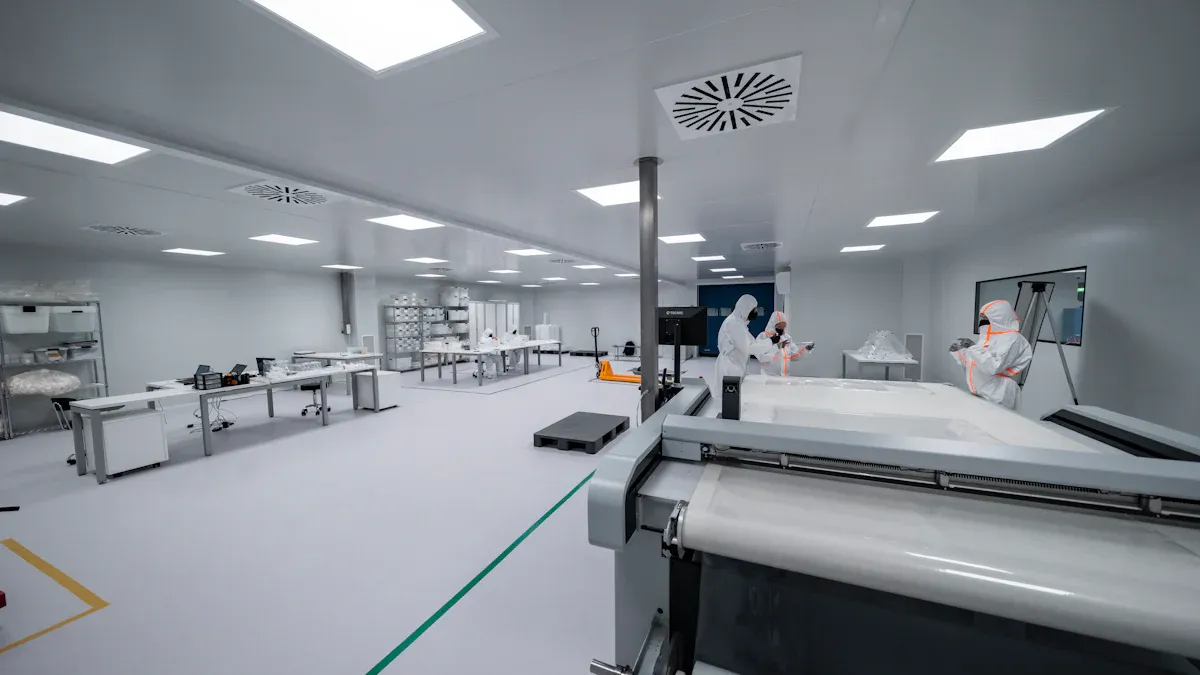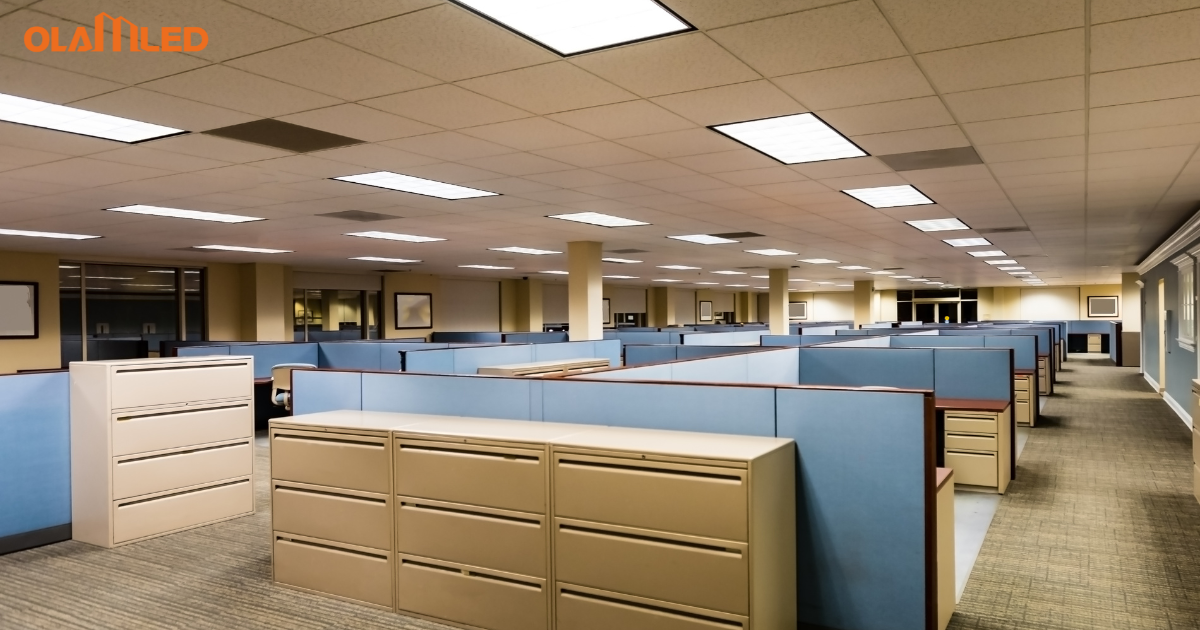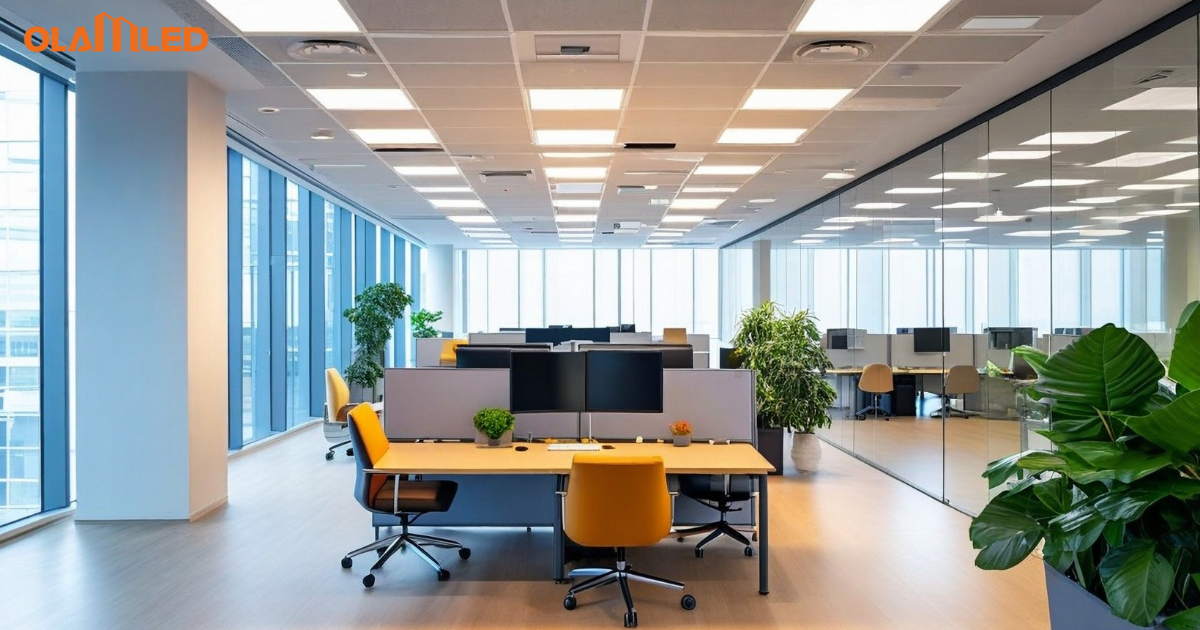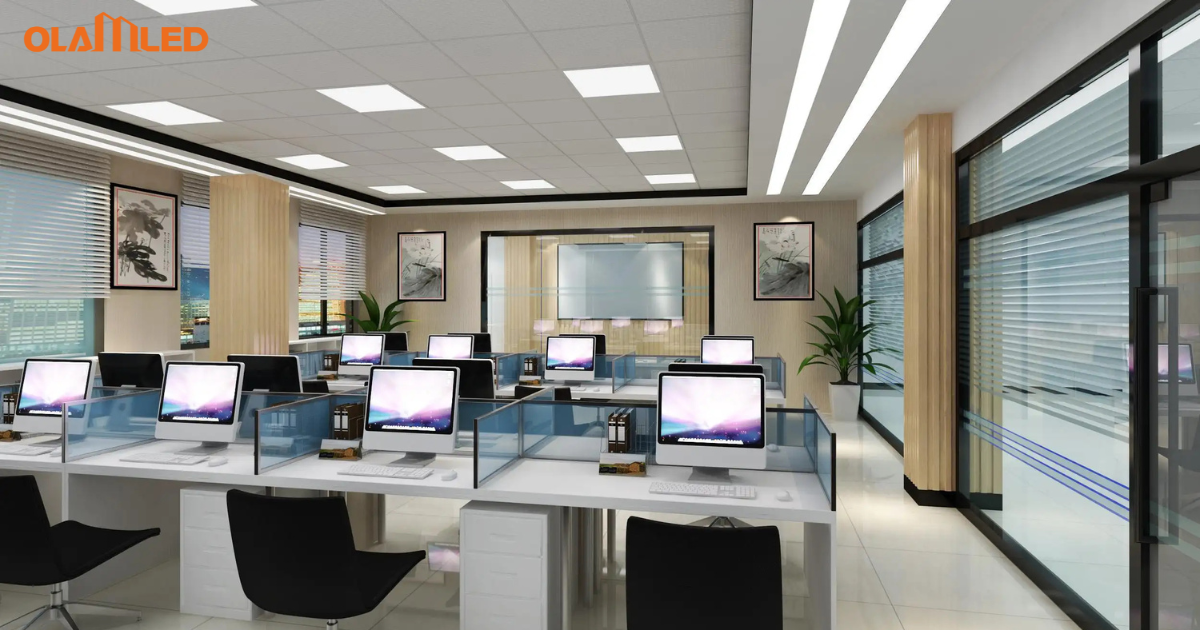
You must follow strict rules for cleanroom lighting to keep your space safe and clean. Cleanroom lighting fixtures help stop contamination and protect people working in the cleanroom. You need to use well-known standards like ISO 14644, GMP, and FDA rules when picking or putting in lighting. These standards tell you how many particles are allowed and how clean your workspace should be.
ISO 14644 class 1-9 shows how clean your room needs to be.
Federal Standard 209E also helps you know cleanroom classes.
If you use the best ways for cleanroom lighting, you follow the rules and make a safe place for important work.
Key Takeaways
Follow ISO 14644 and GMP rules for cleanroom lighting. This helps keep people safe and follows the law.
Use LED fixtures to save energy and money. LEDs also give enough light for work.
Make sure the lighting is even and does not glare. This helps people see better and make fewer mistakes.
Pick fixtures made from materials like aluminum or stainless steel. These materials do not contaminate and are easy to clean.
Keep all papers and certificates for lighting fixtures. You need these to pass checks and follow the rules.
Cleanroom Lighting Requirements
Illumination Levels
Cleanroom lighting must follow strict rules. These rules help keep your workspace safe. ISO 14644 tells you how much light you need for each job. Light is measured in foot-candle units. This helps you know how bright your cleanroom should be. For most cleanrooms, you need 800 to 1,000 lux. This is about 75 to 93 foot-candle. If you do very detailed work, you need more light. You need 1,500 to 2,000 lux, or 140 to 186 foot-candle.
Here is a table that shows how much light you need:
Task Type | Recommended Lux Level | Foot-Candle Equivalent |
|---|---|---|
General Cleanroom Lighting | 800 to 1,000 | 75 to 93 |
High Precision Tasks | 1,500 to 2,000 | 140 to 186 |
You must use these standards for safety and good visibility. The OLAMLED Cleanroom Troffer gives the right amount of light for all jobs. You can learn more about ISO 14644 lighting rules from this resource.
Uniformity and Glare Control
Cleanroom lighting should be even everywhere. You do not want shadows or bright spots. These can hide dirt or problems. ISO 14644 and GMP say you need even brightness. You check uniformity by looking at the brightest and darkest spots. The difference should be small. This helps you see well and make fewer mistakes.
Tip: Even lighting helps you find problems fast and keeps your area safe.
Glare control is also important. You want a Unified Glare Rating (UGR) under 19. This makes your eyes feel comfortable. It helps you focus on small details. A low UGR meets cleanroom lighting rules. The OLAMLED Cleanroom Troffer uses special glare control. This keeps your workspace easy to work in.
Here is a table that shows how even lighting and glare control help:
Feature | Benefit |
|---|---|
Uniform Lighting | Cuts down shadows and reflections |
Glare Control | Lowers eye strain and helps you work better |
You can read more about glare control and UGR at CIE Guidelines.
Color Rendering and Temperature
Color rendering is very important for cleanroom lighting. You need a Color Rendering Index (CRI) over 90. This helps you see true colors and find mistakes. High CRI lights help you check your work and spot defects. Cleanroom lighting rules always include CRI.
You also need the right color temperature. Most cleanroom rules say use 4000K to 5000K. This gives you cool or neutral white light. It makes your workspace look clean and helps you see details. Color temperature is measured in Kelvin. The OLAMLED Cleanroom Troffer has CRI above 90 and lets you adjust color temperature.
Here is a table that shows what cleanroom lights should have:
Specification | Requirement | OLAMLED Cleanroom Troffer Feature |
|---|---|---|
Color Rendering Index | CRI > 90 | Yes |
Color Temperature | Yes | |
Glare Rating | UGR < 19 | Yes |
You can find more about color rendering and temperature at IES Lighting Handbook.
Cleanroom Lighting Fixtures
Sealed Construction and IP Rating
Cleanroom lighting fixtures protect your workspace from dust and water. Sealed construction stops particles from getting inside the fixture. This helps keep your lighting working well and helps control contamination. In ISO Class 5 areas, you need fixtures with at least an IP65 rating. This rating means your clean room lights can be cleaned with water and keep out dust.
IP65 rating keeps out water and dust.
Sealed fixtures block particles from entering.
You can clean these fixtures easily and safely.
Here is a table that shows how sealed construction helps:
Feature | Benefit |
|---|---|
Sealed Housing | Blocks dust and moisture |
Gasketed Design | Stops particles from getting inside |
Non-Shedding Materials | Helps keep cleanroom classification |
You can learn more about IP ratings at IEC Standards.
Impact Resistance and Durability
Cleanroom lighting fixtures should last a long time and stay strong. Impact resistance is important because you move things and clean often. Fixtures with IK10 impact resistance can handle bumps and hits. This keeps your clean room lights working and keeps lighting in place. Strong fixtures also help control contamination by staying sealed after impacts.
Feature | Description |
|---|---|
IK10 Resistance | Handles strong bumps |
Durable Materials | Keeps fixtures sealed and easy to clean |
Long Lifespan | You do not need to replace them often |
The OLAMLED Cleanroom Troffer meets these standards. You get cleanroom lighting fixtures you can trust for every clean room classification.
Mounting Options
You need mounting options that fit your cleanroom space. Flush-mounted clean room lights sit flat on the ceiling. This design removes places where dust can build up. You keep good lighting and help control contamination. Surface-mounted and recessed options let you match your cleanroom needs and workflow.
Mounting Type | Benefit |
|---|---|
Flush-Mounted | No gaps, lowers contamination risks |
Surface-Mounted | Easy to install, fits many spaces |
Recessed | Smooth look, helps with laminar airflow |
You can pick OLAMLED Cleanroom Troffer for flexible mounting. These cleanroom lighting fixtures work in pharmaceutical, biotech, and medical spaces. You meet every clean room classification and keep your workspace safe.
For more details on fixture mounting and cleanroom standards, visit ISO 14644.
Material and Compliance Standards
Non-Contaminating Materials
Lighting fixtures should use materials that do not cause contamination. These materials help keep your cleanroom safe. Aluminum, stainless steel, and carbon steel are good choices. You can clean these surfaces easily. Particles and microbes do not stick to them. Smooth surfaces are simple to wipe down. This lowers the risk of contamination. Sealed designs and parts that do not rust let you use strong cleaners. The fixtures will not get damaged.
Material | Properties |
|---|---|
Aluminum | Does not cause contamination, easy to clean |
Stainless Steel | Strong, can handle tough cleaning |
Carbon Steel | Good at stopping contamination |
Tip: Pick fixtures with sealed designs and non-shedding materials. This helps stop contamination and keeps your cleanroom safe.
Feature | Description |
|---|---|
Non-shedding materials | Can handle cleaning agents, often stainless steel or powder-coated finishes |
Sealed design | Stops dust, particles, and microbes from getting in or out |
Smooth, non-porous surfaces | Makes contamination less likely, easy to clean |
Corrosion-resistant components | Can be cleaned many times, lasts longer |
Minimum IP rating | IP54 for basic safety, IP65 for cleaning often |
Compliance with cleanroom standards | Meets rules for air quality and particle emission |
Regulatory Requirements
You must follow rules for cleanroom lighting. These rules help stop contamination. ISO 14644, GMP, and FDA set these rules. They help you follow the law and keep your workspace safe. Local rules might also apply. Ask your manager or compliance officer about them.
Standard | Description | Link |
|---|---|---|
ISO 14644 | Sets rules for air quality and particle emission in cleanroom lighting | |
GMP | Good manufacturing practice for cleanrooms in pharma and biotech | |
FDA | U.S. Food and Drug Administration rules for cleanroom lighting in medical and pharma places | |
Focuses on fixtures for cleanrooms and pharma processing areas | ||
Sets minimum sanitation rules for materials and design |
Note: Certified lighting fixtures help stop contamination and help you follow the rules.
Certification and Documentation
You need certificates and paperwork for every cleanroom lighting fixture. This shows you follow all the rules. It helps you during audits. Certified products go through tough tests to make sure they are safe. They help stop contamination. You should keep all paperwork, like audit results and fixes. SOPs and monitoring steps help you follow the rules and check for contamination.
Documentation Type | Purpose |
|---|---|
Comprehensive Documentation | Keeps audit results, fixes, and follow-up tasks |
Operational SOPs | Gives instructions for cleanroom work, care, and checks |
Environmental Monitoring Procedures | Checks air quality and particle count to keep following the rules |
Certified lighting stops contamination.
Bad lighting can let particles out and hurt cleanroom safety.
Every certified product passes hard tests for safety and rules.
Design and Efficiency in Clean Room Lighting
Energy Efficiency
Cleanroom lighting should save energy and money. Modern LED fixtures use less power. They can reach 100 lm/W or more. OLAMLED Cleanroom Troffer can go up to 120 lm/W. This means you get bright light but use less electricity. High efficiency helps you meet green goals. It also keeps the room cooler and safer. Some lighting systems use AI to change brightness. They look at real-time data to do this. This saves energy and lowers costs. You pay less for power and repairs. Predictive maintenance helps you fix problems before they get worse. This keeps your cleanroom safe.
Metric | Typical Value | OLAMLED Troffer |
|---|---|---|
Luminous Efficacy | ≥100 lm/W | Up to 120 lm/W |
Lifespan | 50,000+ hours | 50,000+ hours |
Energy Savings | 30–50% | Yes |
Tip: Using high-efficiency lighting helps you stay safe and save money.
Maintenance and Accessibility
Lighting should be easy to fix and reach. OLAMLED fixtures let you get to lights from above or inside. You can solve problems quickly and keep things safe. Flush-top designs stop people from tripping. They also make cleaning easier. You can wipe surfaces fast. This is good for safety and keeping things clean. Modular designs fit your cleanroom and make upgrades simple. Dimmable controls let you change light levels for repairs.
Feature | Description |
|---|---|
Accessibility | |
Flush-top Design | No trip hazards, safer for repairs |
Easy to Clean | Smooth surfaces, quick cleaning |
Modular Integration | Fits your cleanroom, easy to upgrade |
Dimmable Controls | Change light for maintenance |
OLAMLED gives you choices like anti-bacterial options. These fixtures mix germ-killing light with white light. They help keep your cleanroom safe all the time.
Electromagnetic Interference
You need to keep equipment safe from electromagnetic interference. Cleanroom lights should have low total harmonic distortion. It should be 10 percent or less. Magnetic fields should be under two to three milligauss at two feet away. This keeps your tools safe and working well. OLAMLED lights are made to lower EMI emissions. This helps you follow the rules and stay safe.
EMI Standard | Recommended Value |
|---|---|
Total Harmonic Distortion | ≤10% |
Magnetic Field (2 ft distance) | ≤2–3 milligauss |
Note: Low EMI helps protect your equipment and keeps your cleanroom safe.
You need to choose cleanroom lighting that meets strict standards and supports a safe workspace. Follow these best practices:
Pick fixtures that meet ISO and GMP standards.
Use corrosion-resistant materials for long life.
Select LED lighting for better energy savings.
Make sure lighting is uniform and glare-free for your tasks.
Create a compliance checklist and review it often to keep up with new rules.
When you work with lighting experts like OLAMLED, you gain:
Less heat in your workspace
Custom solutions that fit your needs
Stay informed and consult with specialists to keep your cleanroom lighting effective and compliant.
FAQ
What makes clean room lighting different from regular lighting?
You need clean room lighting because it stops contamination and supports strict hygiene. Cleanroom fixtures use sealed designs and special materials. You can clean these lights often. Regular lights do not meet clean room standards. Cleanroom lighting helps you follow ISO 14644 and GMP rules.
How do you choose the right clean room lighting fixture?
You should check the cleanroom class first. You need fixtures with IP65 ratings for most clean room spaces. You must look for IK10 impact resistance. You can use flush-mounted or recessed fixtures. Cleanroom lighting must match your clean room classification and workflow.
Why is uniform illumination important in a clean room?
Uniform illumination helps you see every part of your clean room. You avoid shadows and bright spots. You can spot contamination fast. Cleanroom lighting with low glare (UGR<19) keeps your eyes comfortable. You work better and safer in a clean room with even light.
What certifications do clean room lighting fixtures need?
You need cleanroom lighting with ISO 14644, GMP, and FDA certifications. You should ask for documentation and test results. Certified clean room fixtures help you pass audits. You can find more details at ISO 14644 and FDA Guidance.
How does energy efficiency affect clean room operations?
Energy-efficient cleanroom lighting saves you money and keeps your clean room cooler. You use less power and reduce heat. You can reach up to 120 lm/W with advanced LED fixtures. You help your clean room meet green goals and lower costs.
Feature | Value |
|---|---|
Luminous Efficacy | Up to 120 lm/W |
Lifespan | 50,000+ hours |
Energy Savings | 30–50% |



